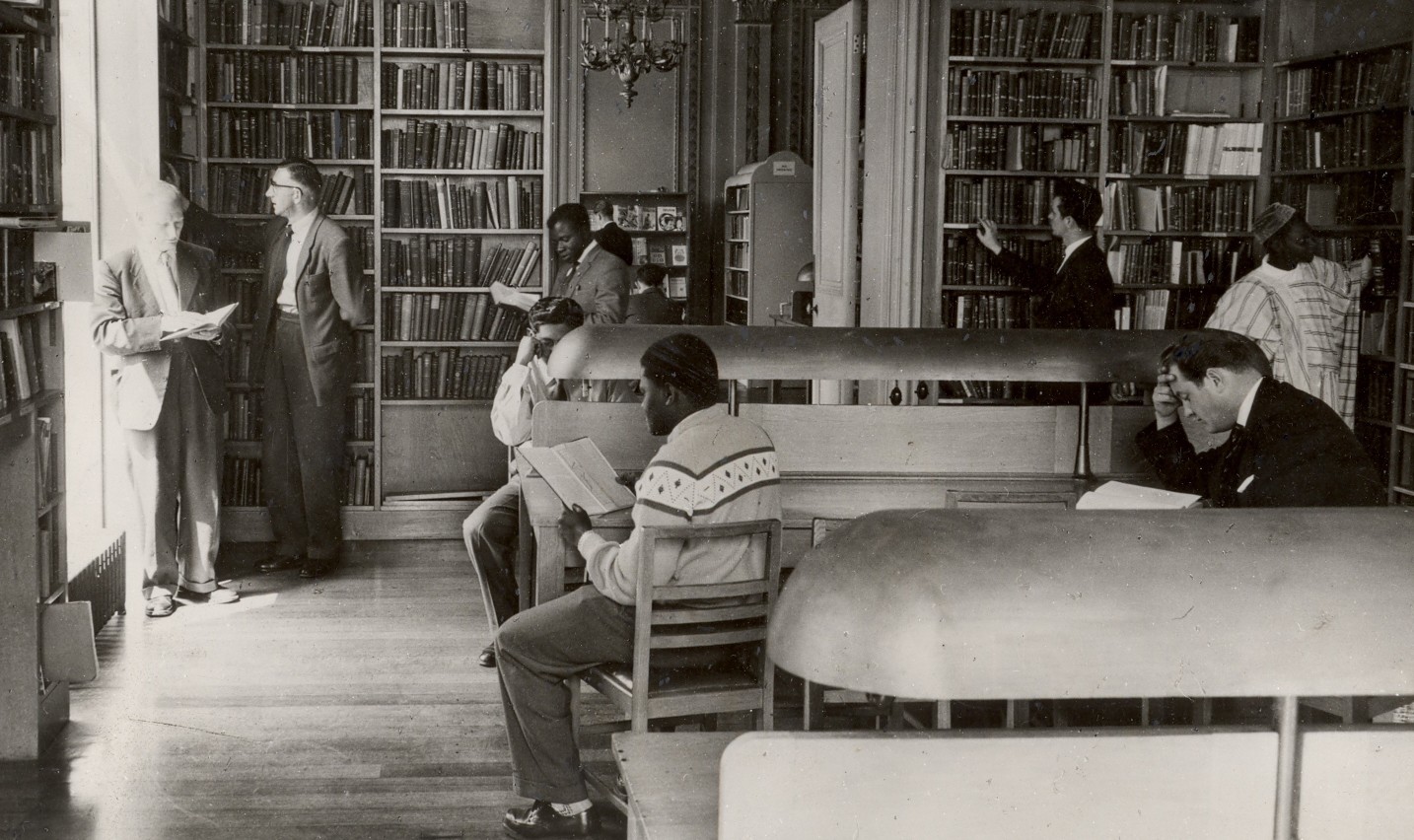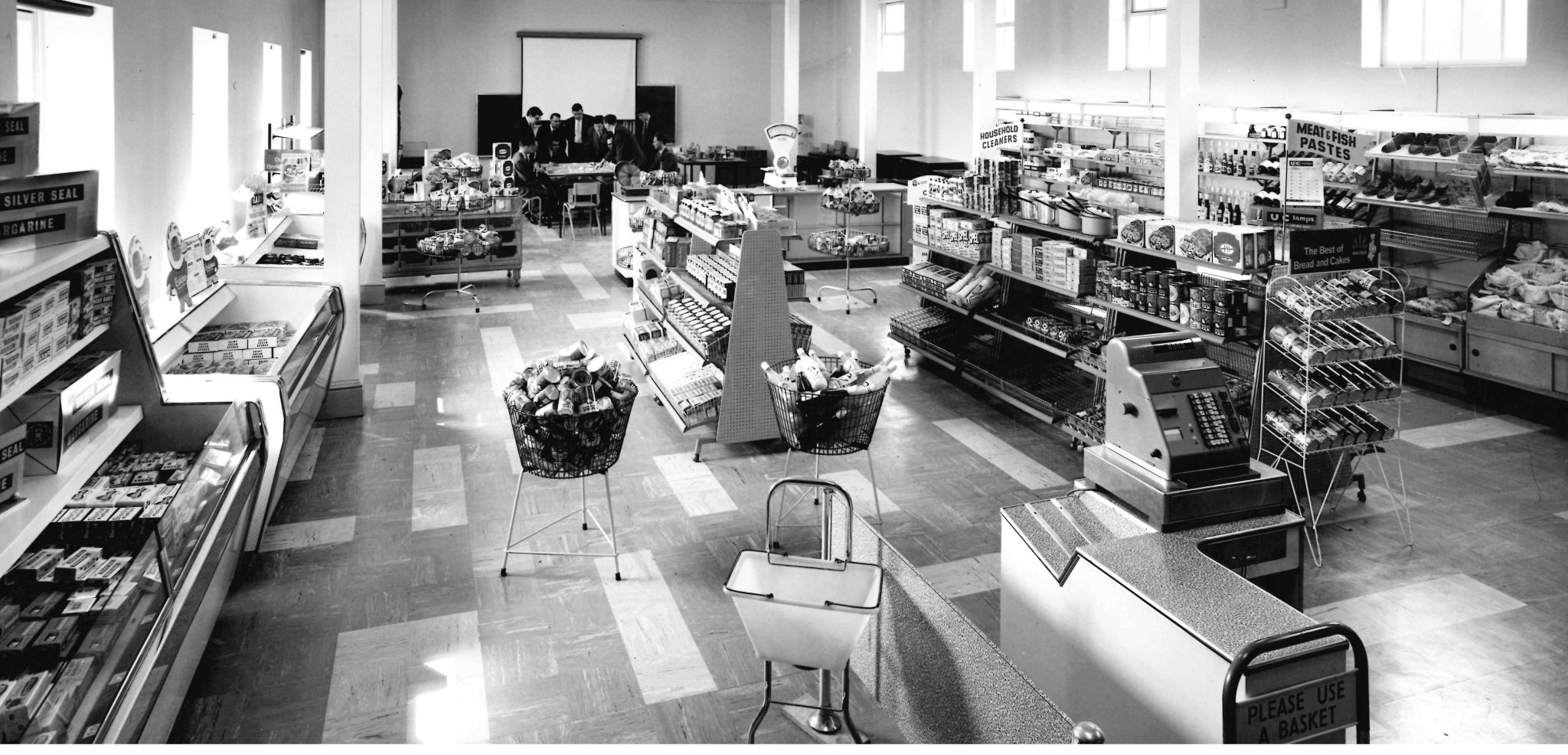As part of regular feature throughout the Co-operative College’s centenary year, archivist Sophie McCulloch explores interesting items from the organisation’s past. This month she looks at how the learning experience has changed for those attending courses at the Co-operative College.
Founded out of a demand for specialist learning to employees of co-operative societies, the College’s first home, Holyoake House, Manchester was equipped with classrooms and large lecture halls. Hostels were also provided for residential students too. Writing in 1928, College principal Fred Hall talked about the work of the College, with students able to study a range of subjects such as co-operative finance and co-operative statistics as well as classes in citizenship and ethics.
A key focus of learning at the time was for consumer co-op societies to give customers a better experience. After all, as members the customers owned part of the society. This was reflected in the types of classes taught by the College – students could learn about the origins of goods sold as well as how to create in-store displays and window dressing. Exams were taken in these subjects as well as bookkeeping and arithmetic – with some up to four hours long!

Courses at catered for all levels, with a particular focus on ensuring that those who left school at a younger age and worked in co-operative stores as apprentices were able to work their way up to management positions. Indeed, it was commonplace at the time for some to be employed by the same society all their working life. As well as this, students could learn about the history and origins of the movement, studying the lives of key figures such as Robert Owen and the Rochdale Pioneers.
The College’s move to Stanford Hall in the 1940s meant better facilities for residential learning. Students could stay there for up to a year, with a greater capacity to host international students.

By the 1960s, shorter courses were also offered, in subjects such as the management of self-service stores, with additional programmes for branch managers and directors of societies. Stanford Hall was even equipped with a full-size mock-up supermarket to enhance the learning experience of students.
Over the years, learning needs began to change and residential courses became less popular. This led to another change in the way College students could learn, as tutors would often go to them, whilst the popularity of online learning also soared.
What hasn’t changed though is the College’s commitment to providing the best possible learning experience that it can, with a focus on strengthening the co-operative movement not only here in the UK, but internationally too.
- More information about the College and how you can get involved in its centenary year is available at: co-op.ac.uk/centenary
- More College Centenary Archive features here

